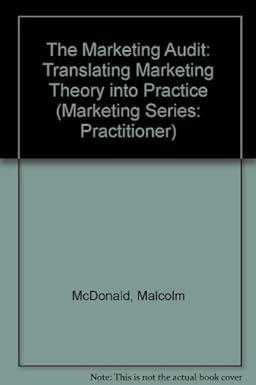Answered step by step
Verified Expert Solution
Question
1 Approved Answer
1less than or equal to or greater than 2) less than or equal to or greater than 3)decrease or increase 4) decrease increase 5)added to
 1less than
1less than
or equal to
or greater than
2) less than
or equal to
or greater than
3)decrease
or increase
4) decrease
increase
5)added to
subtracted from
in the denominators of
in the numerators of
To help pay for university, you have just taken out a $1000 government loan that makes you pay $141 per year for 20 years. However, you don't have to start making these payments until you graduate from university three years from now. Why is the yield to maturity necessarily less than 13%? (This is the yield to maturity on a normal $1000 fixed-payment loan on which you pay $141 per year for 20 years.) If your loan (S141 per year for 20 years starting three years from now) had the same yield to maturity as a normal fixed-payment loan with payments of $141 per year for 20 years, then the present value of each $141 payment on your loan would be the present value of each corresponding $141 payment on the normal fixed-payment loan, and therefore today's value of your loan would be today's value of the normal fixed-payment loan. For today's value of your loan to be the same as today's value of the normal fixed-payment loan, the present values of your yearly payments must For that to happen, the yield to maturity on your loan must since yield to maturity is the present values of your paymentsStep by Step Solution
There are 3 Steps involved in it
Step: 1

Get Instant Access to Expert-Tailored Solutions
See step-by-step solutions with expert insights and AI powered tools for academic success
Step: 2

Step: 3

Ace Your Homework with AI
Get the answers you need in no time with our AI-driven, step-by-step assistance
Get Started


